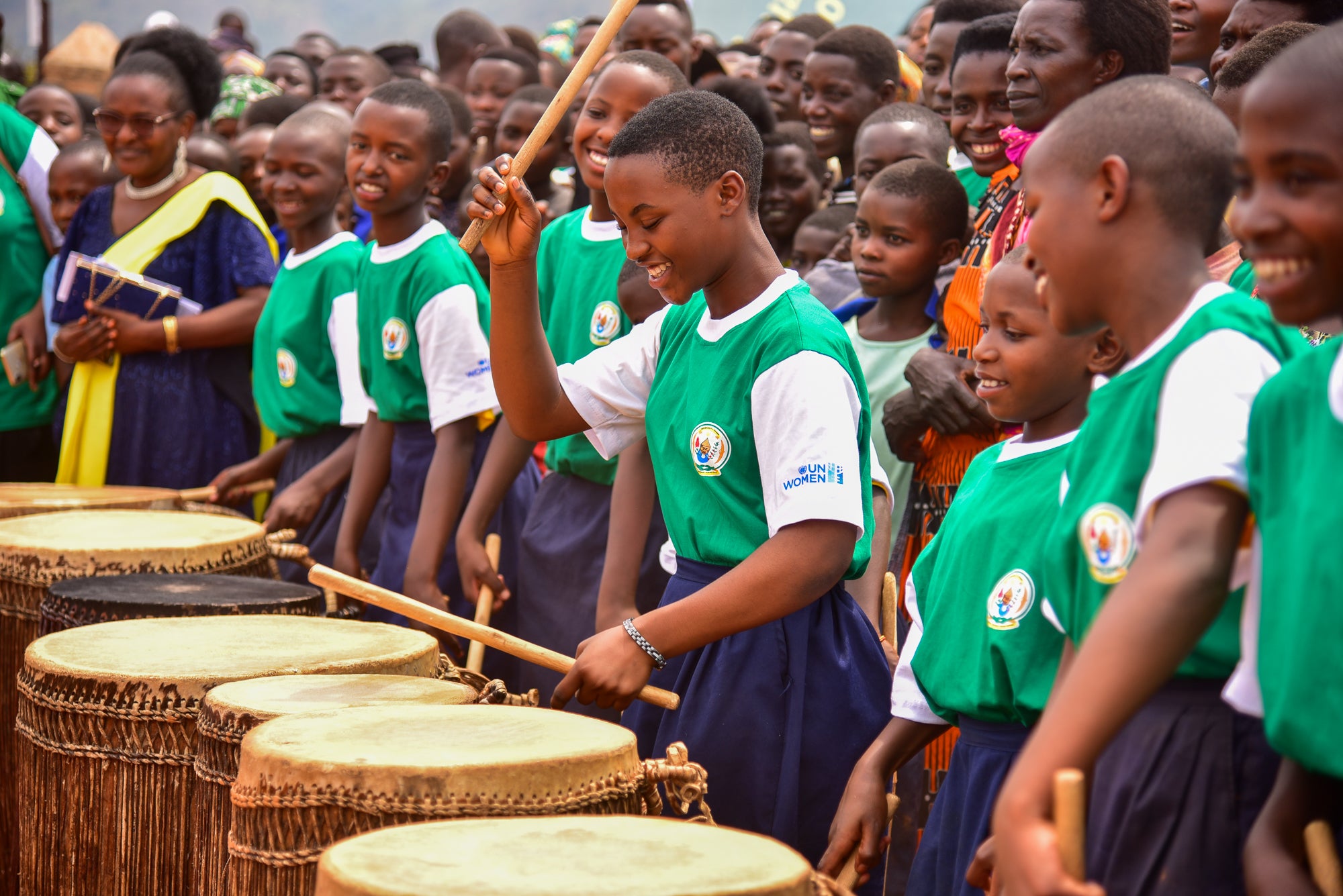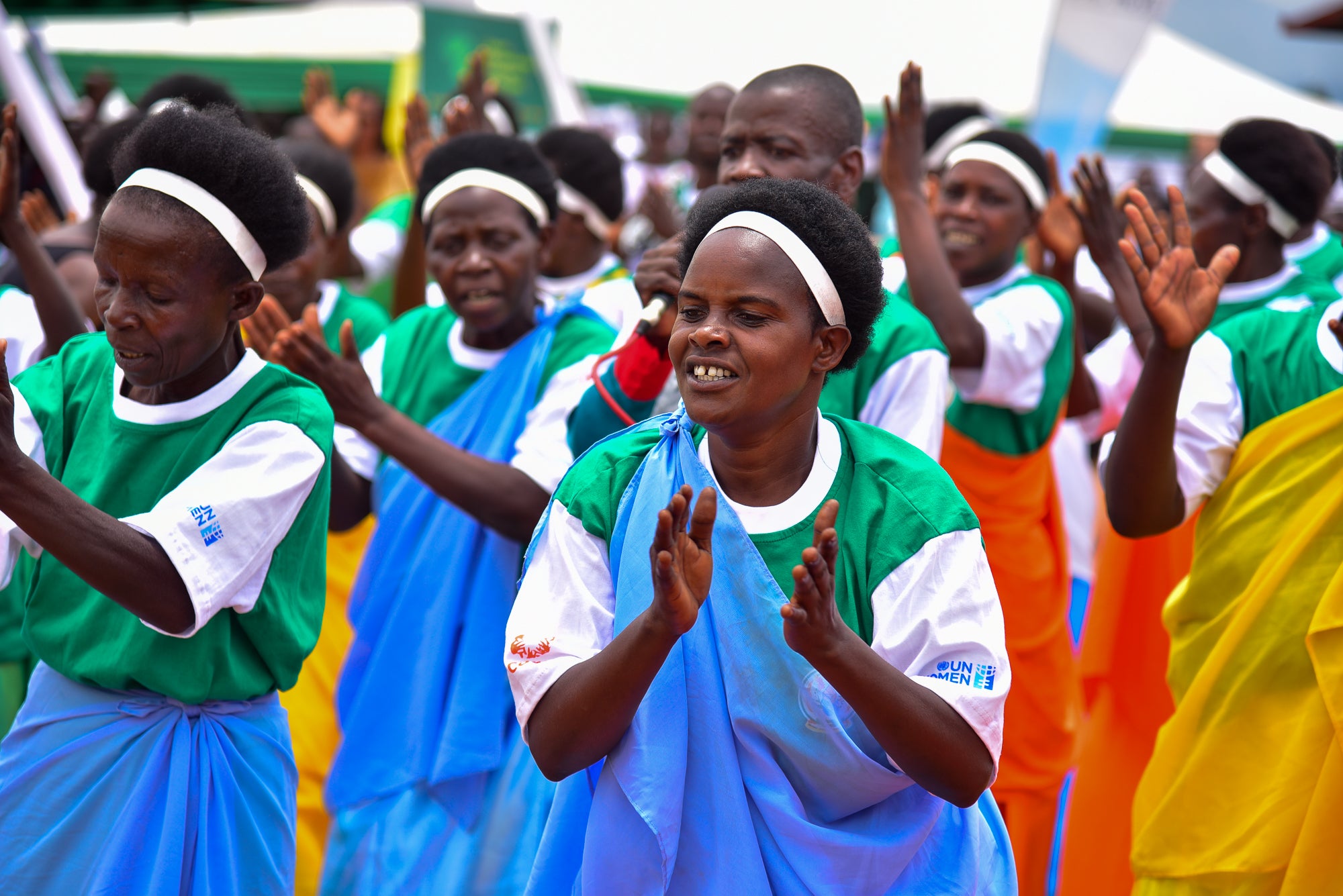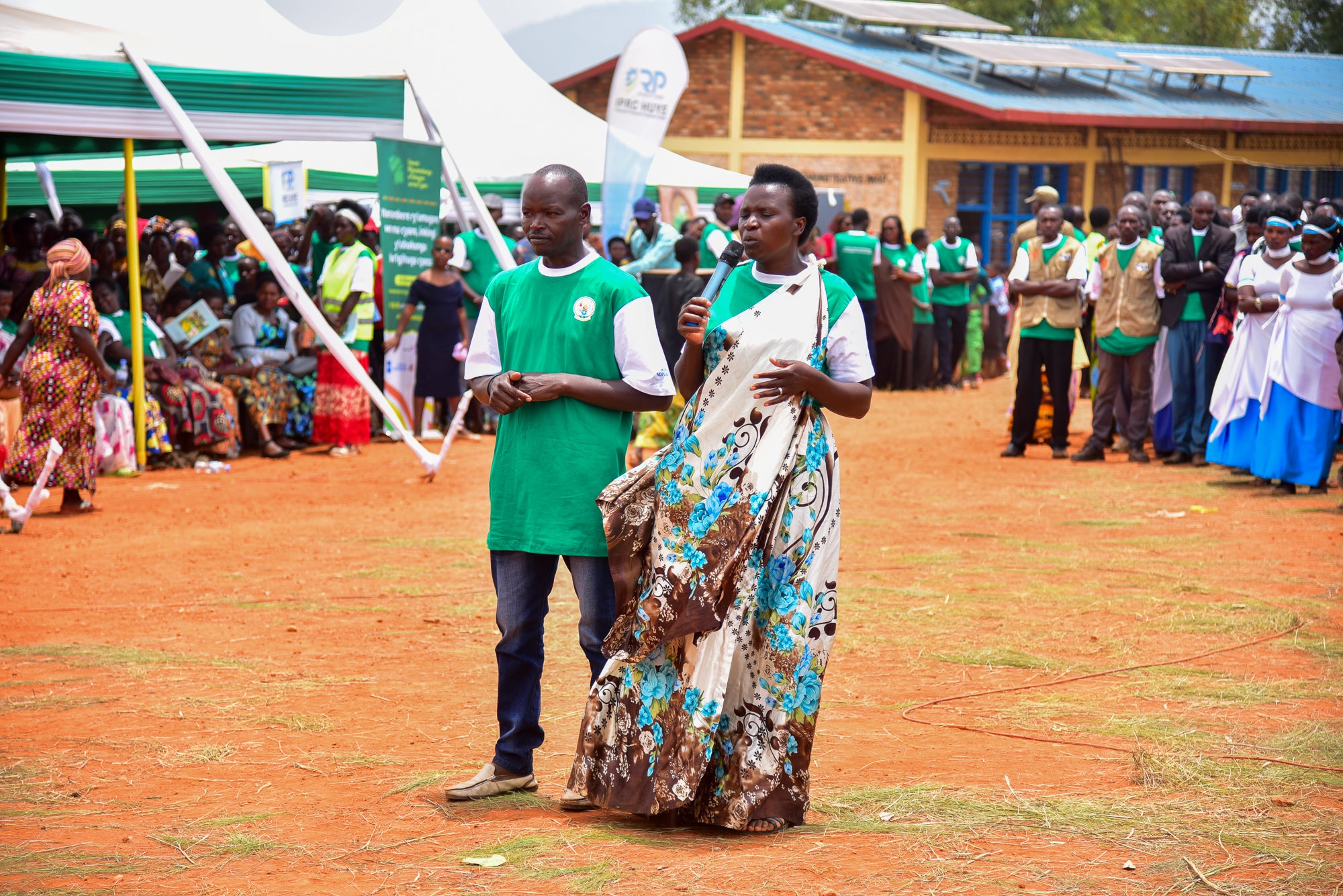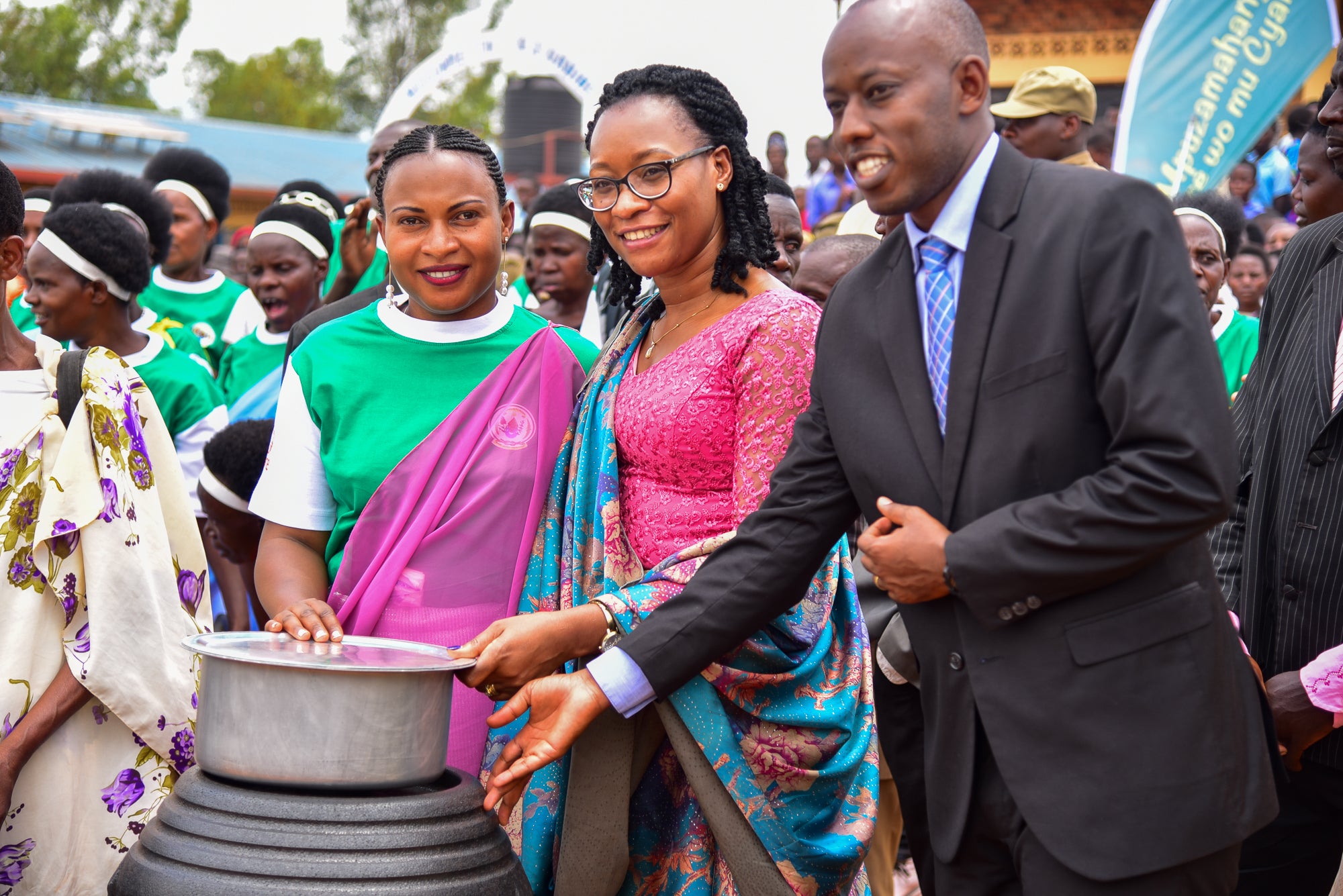Rwanda celebrates International Rural Women’s Day
Date:

On 15th October 2022, Rwanda marked International Rural Women’s Day in Huye District, Kigoma Sector, Southern province of Rwanda. The event was organized under the theme “Development of rural women, a pillar of Rwanda’s Economy”. International Rural Women’s Day presents a moment to reflect, recognize and raise the voice of rural women on the vital role that they play in the sustainable development of the community and nation.

Rural women constitute one-fourth of the world’s population, and they play a critical role in the well-being of families and communities in the rural and national economies, especially in most African countries. Rural women are central to the development of rural areas. A great number of women are involved in agriculture as a labor force (especially in subsistence farming), they participate in crop production and livestock care, provide food, water, and firewood for their families, and engage in off-farm activities to diversify their families’ livelihoods.
Rural women perform most of the care work in rural areas including but not limited to caring for children, older persons, and the sick; cooking, cleaning, fetching water, collecting firewood, etc. This increased during the COVID-19 pandemic when women and girls started earning less, saving less, and holding less secure jobs which exposes them further to gender-based violence in the households.

At the celebration, Circonstance Mukangira, a beneficiary of Village Savings and Loans Associations (VLSA) gave a testimony of the difference in her life and her family from being a part of the VSLA. She shared that she began by giving RWF200(about $0.19) per week to the savings. After a year, she received over RWF 32,400 (about $30.93) which she plowed into a business, and currently, she can save around RWF4200 (about $4) per week. Additionally, her husband was convinced to join the VSLA after seeing the benefits of the savings and investment and he also spoke about the positive change in the family. Both improved their lives with safe housing, and secured land for farming and livestock.

As part of the national celebration, led by Prof. Jeannette Bayisenge, Rwanda’s Minister of Gender and Family Promotion, women were supported with start-up capital and tailoring machines. Ten families were each given a cow as well as energy and time-saving cooking kits.
UN Women in partnership with the National Women's Council (NWC) provided four hundred energy and time-saving cooking kits to rural women across the country during the celebration of the international day of rural women.
In her remarks after presenting the items, Prof. Bayisenge said that "today is a great day for rural women as the theme mentioned, the occasion reminds us to reinforce our engagement to support them in their important role of being a real pillar of our country’s economy. This engagement should attract more attention to development sectors, policymakers, education, private sector, and rural women themselves”
She added that however much progress has been made in empowering women economically and socially, they still face challenges in education, health, socio-economy, limited access to finance, the burden of unpaid care work, family conflict, etc., and called for collaboration from all stakeholders to address those key challenges.